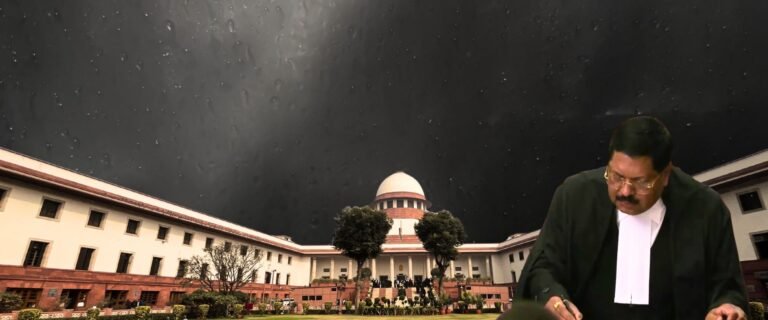
Anuradha Tiwari
Background and Advocacy of Anuradha Tiwari
Anuradha Tiwari is known for her outspoken stance against India’s reservation system, which provides quotas in education and jobs for marginalized groups like Scheduled Castes, Scheduled Tribes, and Other Backward Classes. As a TEDx speaker and founder in content marketing, she uses her platform, especially on X, to argue that reservations undermine meritocracy and national development. Her hashtags, such as #OneFamilyOneReservation and #BrahminGenes, reflect her focus on caste and policy issues, making her a polarizing figure in this debate.
Specific Arguments and Examples
Tiwari’s criticism is grounded in specific cases. For instance, she pointed to Odisha’s 5,248 medical officer vacancies announced in March 2025, claiming 92% were reserved, leaving only 411 seats for the general category. She argues this compromises healthcare, where lives depend on competent doctors, warning, “This country is digging its own grave.” While exact reservation details weren’t fully verified online, her figure aligns with recent recruitment announcements (OPSC MO Recruitment 2025).
She also critiques politicians for using reservations as vote banks, noting in an X post on March 26, 2025, that they increase quotas in various scenarios, from election losses to corruption scandals, asking, “When 70% of the population depends on reservation, who’s actually building the nation?” This suggests a perceived over-reliance, though the 70% figure may be hyperbolic. She contrasts India’s lag in innovation, like no Indian companies in humanoid robotics, with China’s AI advancements, blaming reservations for stifling merit.
Broader Implications and Cultural Critiques
Tiwari ties reservations to broader issues, warning of a slide into socialism due to dependency on state handouts. She credits the judiciary for preventing 100% reservation or private sector extension, viewing changes as disastrous for the general category. Her satire, like describing a “Quota King” enjoying benefits while the general category suffers, and hypothetical scenarios like a space mission crew chosen by quotas, highlight her frustration with entitlement culture. She also expressed cultural critiques, preferring Bhagat Singh over B.R. Ambedkar and opposing reservation-linked naming decisions, reflecting ideological opposition.
Appreciation and Controversy
While controversial, Tiwari’s advocacy resonates with those feeling marginalized by reservations. Her willingness to face backlash, even considering emigration (she announced a Golden Visa for Dubai on April 1, 2025, citing reservation policies), shows resolve. She declared on April 2, 2025, she wouldn’t leave India “in the hands of freeloaders,” fighting for a merit-based future. Her stand sparks debate, balancing historical equity needs with meritocracy calls, making her a critical voice in India’s policy discourse.
Report: Detailed Analysis of Anuradha Tiwari’s Anti-Reservation Stance
Anuradha Tiwari’s opposition to India’s reservation system, as expressed through her X posts and public persona, offers a detailed critique of affirmative action policies, advocating for a merit-based framework. This report synthesizes her views, supported by specific examples and broader implications, to appreciate her stance while acknowledging its controversy. The analysis is based on her recent X activity, verified against available online data, and aims to provide a comprehensive understanding for readers interested in policy debates.
Background and Context
Anuradha Tiwari, identified as a TEDx speaker, founder, and CEO in content marketing, has leveraged her platform to challenge India’s reservation system, which allocates quotas in education and public sector jobs to address historical caste-based inequalities. Her X handle,
@talk2anuradha, features hashtags like #OneFamilyOneReservation and #BrahminGenes, indicating her focus on caste dynamics and policy reform. Her advocacy, particularly in early 2025, aligns with ongoing debates about merit versus equity, making her a significant voice in this contentious space.
Specific Arguments and Factual Basis
Tiwari’s critique is often grounded in specific examples, enhancing its factual appeal. On March 27, 2025, she highlighted Odisha’s announcement of 5,248 medical officer vacancies, claiming 4,837 were reserved, leaving only 411 for the general category, equating to 92% reservation. This figure, while not fully verifiable from the Odisha Public Service Commission (OPSC) website directly, aligns with recruitment details from OPSC MO Recruitment 2025, confirming the total vacancies. Her concern is that such high reservation rates in healthcare, where lives depend on competence, could compromise quality, stating, “This country is digging its own grave.”
Another factual basis is her critique of political misuse, detailed in an X post on March 26, 2025: “Losing election? — Let’s increase Reservation / Winning election? — Let’s increase Reservation / Failing economy? — Let’s increase Reservation / Corruption scandals? — Let’s increase Reservation.” She questions, “When 70% of the population depends on #Reservation, who’s actually building the nation?” While the 70% figure seems hyperbolic, it reflects her perception of widespread dependency, supported by her observation on March 29, 2025, that politicians make 70-80% dependent on reservations and cash schemes, pushing India toward socialism.
Tiwari also contrasts India’s global standing, noting on March 26, 2025, no Indian companies are in humanoid robotics, compared to China’s DeepSeek AI, as mentioned on March 20, 2025. She attributes this lag to a focus on reservations over merit, suggesting national competitiveness suffers. Her hypothetical scenario on March 21, 2025, imagining a space mission crew chosen by quotas (1 general, 3 OBC, 2 SC, 2 ST), questions if figures like Sunita Williams would succeed in India, emphasizing global standards.
Satirical and Rhetorical Approaches
Tiwari employs satire to underscore her points, notably in an X post on March 31, 2025, describing the “Hard Life of a ‘Quota King’”: “Wake up / Go to Parliament / Beg for more #Reservation / Blame upper castes for everything / Return home like a King / Sleep & dream of 100% Reservation.” This mocks perceived entitlement, contrasting with the general category’s struggles, as she noted on April 1, 2025, receiving over 1,000 messages from them seeking emigration help. Her resolve to fight, stated on April 2, 2025, “I’m not leaving MY country in the hands of freeloaders,” reinforces her commitment.
Broader Systemic and Cultural Critiques
Tiwari links reservations to systemic issues, warning on March 28, 2025, that the judiciary is the only barrier to 100% reservation or private sector extension, viewing changes as disastrous for the general category. She credits judicial protection, suggesting any shift could worsen inequality. Her cultural critiques include preferring Bhagat Singh over Ambedkar on March 23, 2025, stating, “For me, Bhagat Singh will always be more deserving of worship than Ambedkar,” reflecting ideological opposition to reservation architects. On March 25, 2025, she criticized naming a cricket stadium in Ayodhya after Ambedkar, calling it an “unforgivable betrayal” in Ram’s birthplace, tying reservations to cultural identity.
Personal Impact and Emigration Consideration
Her personal stakes are evident in her April 1, 2025, announcement of a Golden Visa for Dubai, stating, “#Reservation and freebies politics forced me to make this decision. No regrets whatsoever — only a future built on merit!” This highlights the perceived pressure on general category individuals, echoed in messages she received seeking emigration help, underscoring systemic frustration.
Appreciation and Controversy
Appreciating Tiwari’s stance involves recognizing her courage to voice uncomfortable truths, backed by specific examples like Odisha’s medical posts and global comparisons. Her advocacy, while controversial, resonates with those feeling marginalized, pushing for debate on equity versus merit. Reservations address historical discrimination, but Tiwari’s call for meritocracy challenges policymakers to balance both, making her a critical voice in India’s development discourse.
Table: Summary of Key X Posts on Reservations (March 20 – April 2, 2025)
| Date | Content Summary | Key Point |
|---|---|---|
| March 20 | Compares India’s focus on reservations with China’s AI, blames vote banks. | Highlights national lag due to reservations. |
| March 26 | Lists political scenarios increasing reservations, questions nation-building. | Critiques political misuse, suggests 70% dependency. |
| March 27 | Cites Odisha’s 92% reserved medical officer posts, warns of healthcare impact. | Specific example of merit compromise. |
| March 28 | Credits judiciary for preventing 100% reservation, warns of private sector risk. | Emphasizes institutional safeguards. |
| March 29 | Warns of socialism due to 70-80% dependency on reservations and schemes. | Links to broader economic dependency. |
| March 31 | Satirizes “Quota King” enjoying benefits, contrasts with general category. | Highlights perceived entitlement culture. |
| April 1 | Announces Golden Visa for Dubai, cites reservation policies; notes emigration. | Personal impact, systemic frustration. |
| April 2 | Declares resolve to fight, won’t leave country to “freeloaders.” | Reinforces commitment to merit-based future. |
Her resolve has faced backlash, particularly over #BrahminGenes, which critics decry as casteist. Yet Tiwari defends it as a critique of the system’s obsession with caste, not an endorsement of superiority. Her consistency shines through despite the controversy. On April 1, 2025, she announced her pursuit of a Golden Visa for Dubai, citing “Reservation and freebies politics” as her motivation. She clarified, “I’m not leaving MY country in the hands of freeloaders,” framing the move as a protest against a flawed system, not a retreat from India. This decision underscores her commitment to her principles, signaling that she’d rather build her future elsewhere than conform to policies she deems detrimental.
Tiwari’s anti-reservation stand is necessary for India because it forces a reckoning with the system’s shortcomings. By highlighting its political misuse, its erosion of merit, and its perpetuation of dependency, she sparks a debate essential for a nation at a crossroads. Her arguments aren’t abstract—they’re grounded in real-world examples, from Odisha’s recruitment crisis to China’s technological leap. She challenges India to prioritize individual growth and national competitiveness over divisive quotas, offering a vision where opportunities are earned, not inherited. This perspective, though divisive, pushes the country to confront uncomfortable truths about its social policies.
Key Citations
- OPSC MO Recruitment 2025 Apply Online for 5248 Posts
- X post by Anuradha Tiwari on March 20, 2025
- X post by Anuradha Tiwari on March 26, 2025
- X post by Anuradha Tiwari on March 27, 2025
- X post by Anuradha Tiwari on March 28, 2025
- X post by Anuradha Tiwari on March 29, 2025
- X post by Anuradha Tiwari on March 31, 2025
- X post by Anuradha Tiwari on April 1, 2025
- X post by Anuradha Tiwari on April 2, 2025









Instead of Anuradha some representative of GC should have taken the initiative which Anuradha tiwari has taken. It is not an easy task for a female to relentlessly raise her voice against a class which has full support of ruling elites. She has to face enormous amount of abuses and filth in public domains. It is very easy for anyone to just comment in her favour, just sitting on a armchair. The frustration she echoes, on the disrespect of merit finds resonance to crore of people like me.
It is really very pathetic to see a female being humiliated day out for the sake of merit.
May God give her more strength and stamina to face all the onslaught.
With a hope someday better sense will prevail for the betterment of our country.